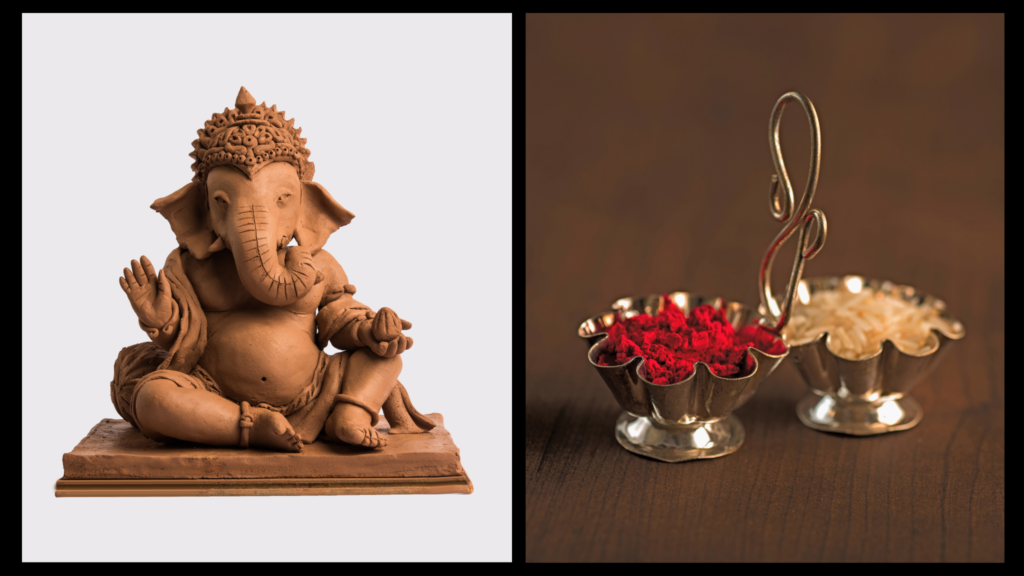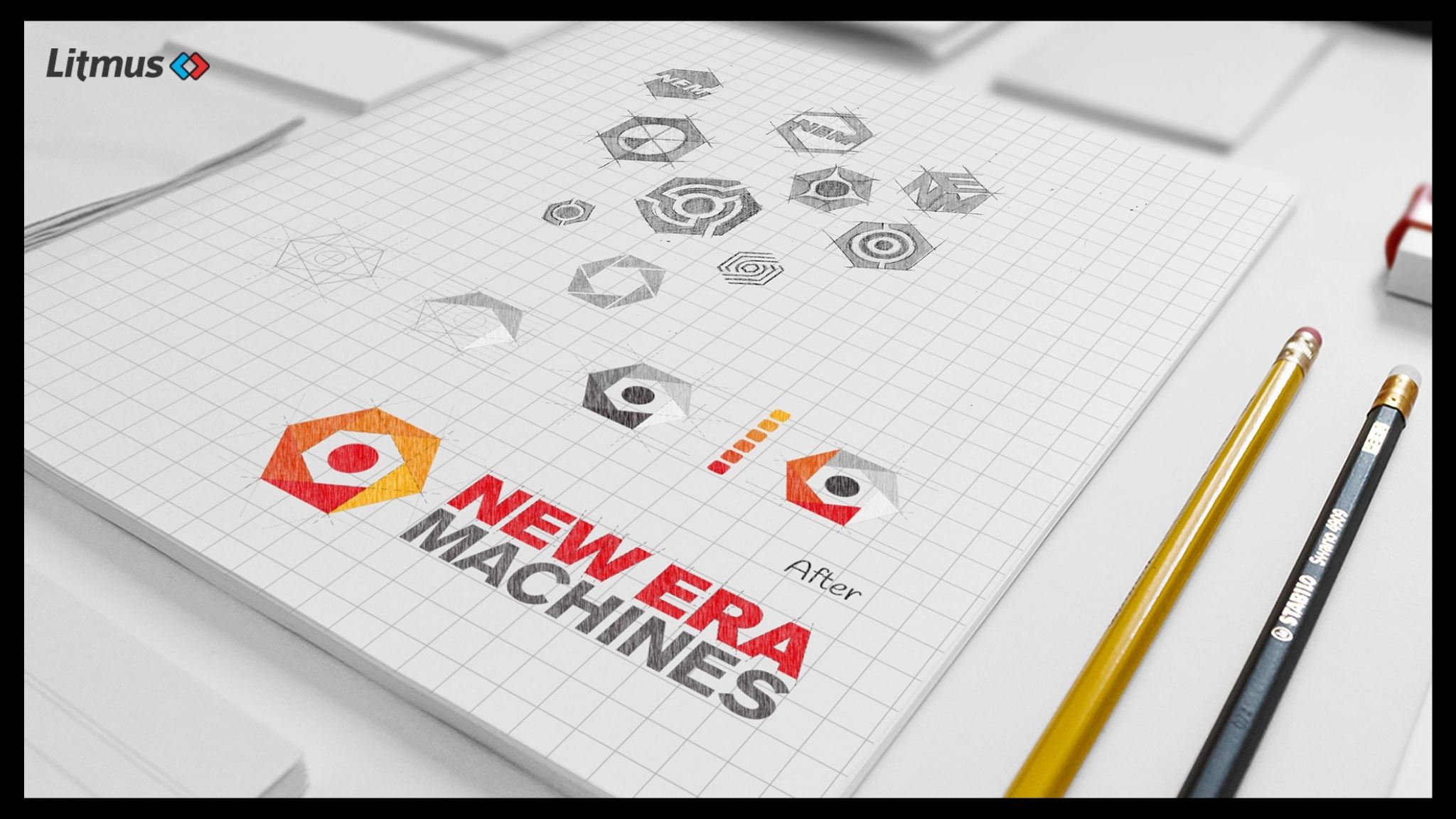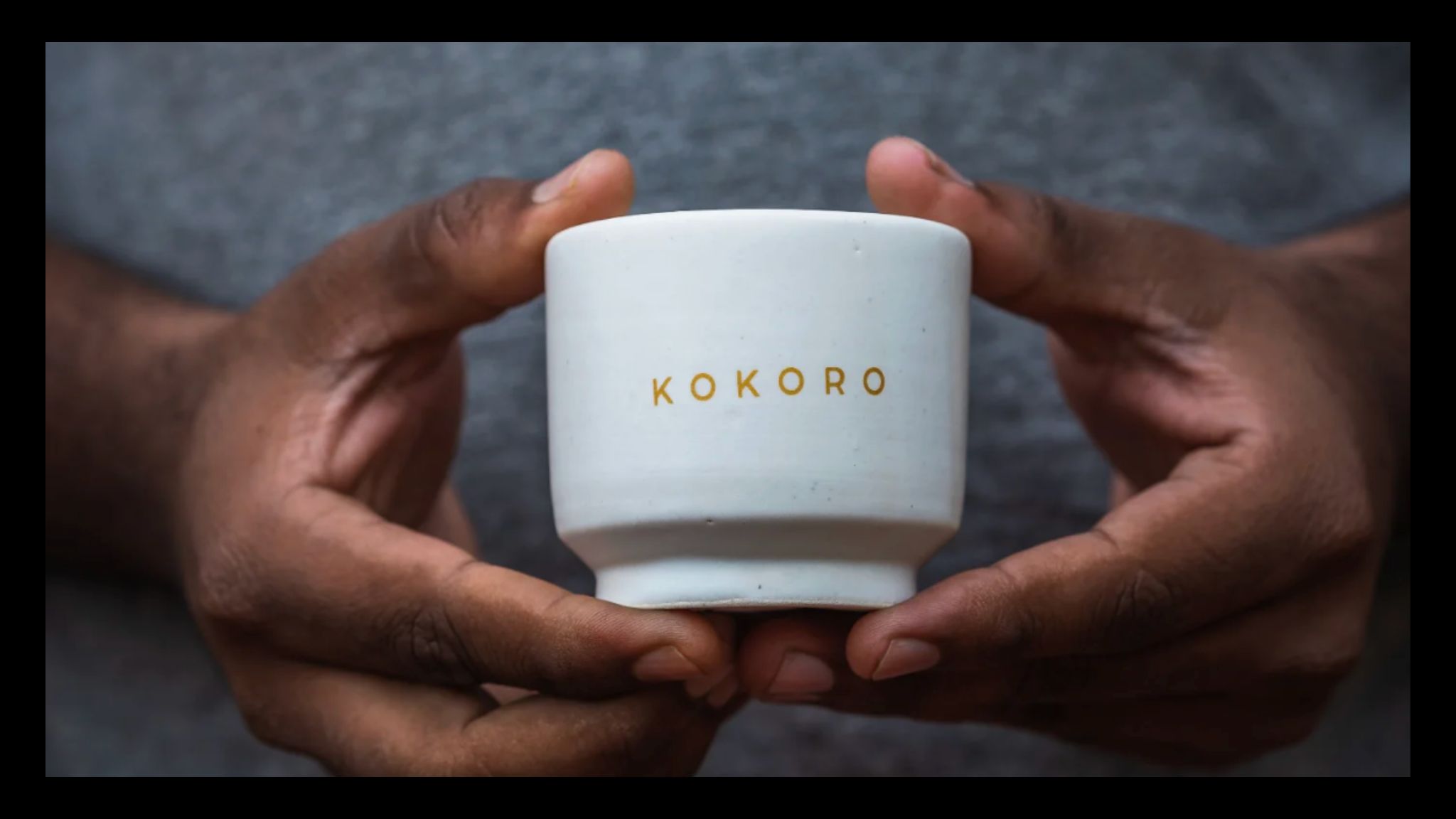“Ganesh Chaturthi should leave blessings, not pollution.”
In Gujarat, this belief is gaining ground every year. The festival, beloved for devotion and unity, also raises eco concerns. Clay idols dissolve gently, while PoP versions harm water bodies. Thankfully, local innovators are changing the narrative.
Artisans make idols from cow dung, creating compost after immersion. The Ahmedabad Municipal Corporation (AMC) now sells idols embedded with seeds and made of cattle dung, clay, and mud from zero-waste ponds. Gujarat hosts clay idol fairs, offering state aid to artisans. This blog explores how the festival still fuels commerce—now with sustainability at its heart.
How Gujarat Celebrates Ganesh Chaturthi
During Ganesh Chaturthi in Gujarat, markets fill with décor, idols, sweets, and jewelry. Public pandals rise overnight. In places like Surat, over 80,000 idols are worshipped across communities, many placed at homes or local clusters, not only big public venues. Immersions in river beds are banned, and 21 artificial ponds serve as composed immersion spots—shortening logistics and pollution.
This approach boosts local artisans and shops. Festival-driven spending supports unseen small businesses supplying flowers, prasad kits, sweets, and décor. Even tour operators in Dwarka and community groups gain through pilgrim commerce.
Government Supports Eco Moves
The Ahmedabad Municipal Corporation now sells eco-friendly idols made from cattle dung, clay, and seeds, dressing them in green—literally. These idols are compostable and sprout plants after immersion. They cost ₹300–₹600 and are sold at AMC zones and online.
The Gujarat Government hosted clay idol fairs in Ahmedabad, Vadodara, and Surat (Aug 21–27, 2025). They offered 231 tonnes of clay to 390 artisans, gave free stalls, a daily ₹1,000 allowance, and helped sell idols worth ₹15.51 crore with ₹1.51 crore in state aid.
These efforts make eco-idols accessible and economically viable for local creators.

Artisans & Eco Innovations from Gujarat
Cow-Dung Compostable Idols
Ashok Patel of Ahmedabad, featured by Global Shapers, has been making Ganpati idols from cow dung since 2011. Initially, crafting one idol took three hours. With National Innovation Foundation (NIF) help, it’s now done in minutes. Upon immersion, the idol becomes compost—even enriching home gardens.
Vadodara’s Vedic Ganpatis
Based in Vadodara, Kamdhenu Gau Amrita makes cow-dung Ganpati idols. These dissolve at home, leaving fertilizer behind. They are cheaper than PoP or conventional clay idols.
GauNext Organics
GauNext Organics in Surat sells small, biodegradable, and ornamental idols made from cow dung.
Easy and Safe Ways to Celebrate Ganesh Chaturthi
Ganesh Chaturthi is about joy, faith, and togetherness. At the same time, it’s important to celebrate in ways that are safe for the environment and our cities. Small mindful changes could lead to a large impact. The following are simple, practical tips that you could adopt this year:
- Instead of PoP ones, choose cow dung or clay idols. They are eco-friendly and will not pollute water bodies as they disintegrate.
- Use turmeric, kumkum or plant based dyes to decorate idols and pandals.
- Use LED lights and natural materials like flowers and cloth instead of plastic.
- Use artificial ponds set up by local authorities. For smaller idols, immerse in a bucket or tub at home and reuse the water for plants.
- If you use cow-dung or seed idols, let the residue compost into soil or sprout into plants.
- Prefer home-based or colony-level immersions. This reduces crowding, waste, and pollution.

Local Businesses Making Eco-Friendly Ganpati Idols
Gavyamart Panchgavya Utpad Pvt. Ltd. – Banaskantha, Gujarat
They produce Gomaya Ganesh—9-inch cow-dung idols that are biodegradable and spiritually aligned with rural tradition. Sold online via Gavyamart, they offer plant-safe, eco-conscious idols.
EcoGaneshArts – Ahmedabad, Gujarat
EcoGaneshArts produces handcrafted clay Ganpati idols using natural materials, fully decomposable in water within 45–60 minutes. Founded by Ranjitsing Lalsing Rajput, they’ve operated for over a decade and offer online booking with door delivery across Ahmedabad and Mumbai.
EcoGanpati – Serving Ahmedabad & Vadodara
EcoGanpati offers red-clay idols made from organic soil, fertilizers, and seeds—completely chemical-free and biodegradable. They open pre-booking each Ganesh season and deliver across major cities.
Conclusion
From household shrines to temple pandals, Ganesh Chaturthi in Gujarat is no longer solely about tradition—it reflects how culture adapts to protect nature.
Thanks to promoters like Ashok Patel, Kamdhenu Gau Amrita, and AMC-backed seed idols, local artisans now find meaning and income in eco-responsible celebrations. Gujarat balances devout celebration and environmental conscience.
This eco-aware festival model offers a lesson: devotion thrives best when layered with care for the Earth. Next Ganesh’s homeward return can nourish us—and the soil that hosts our future. Stay tuned with Gujpreneur for more stories like this!







